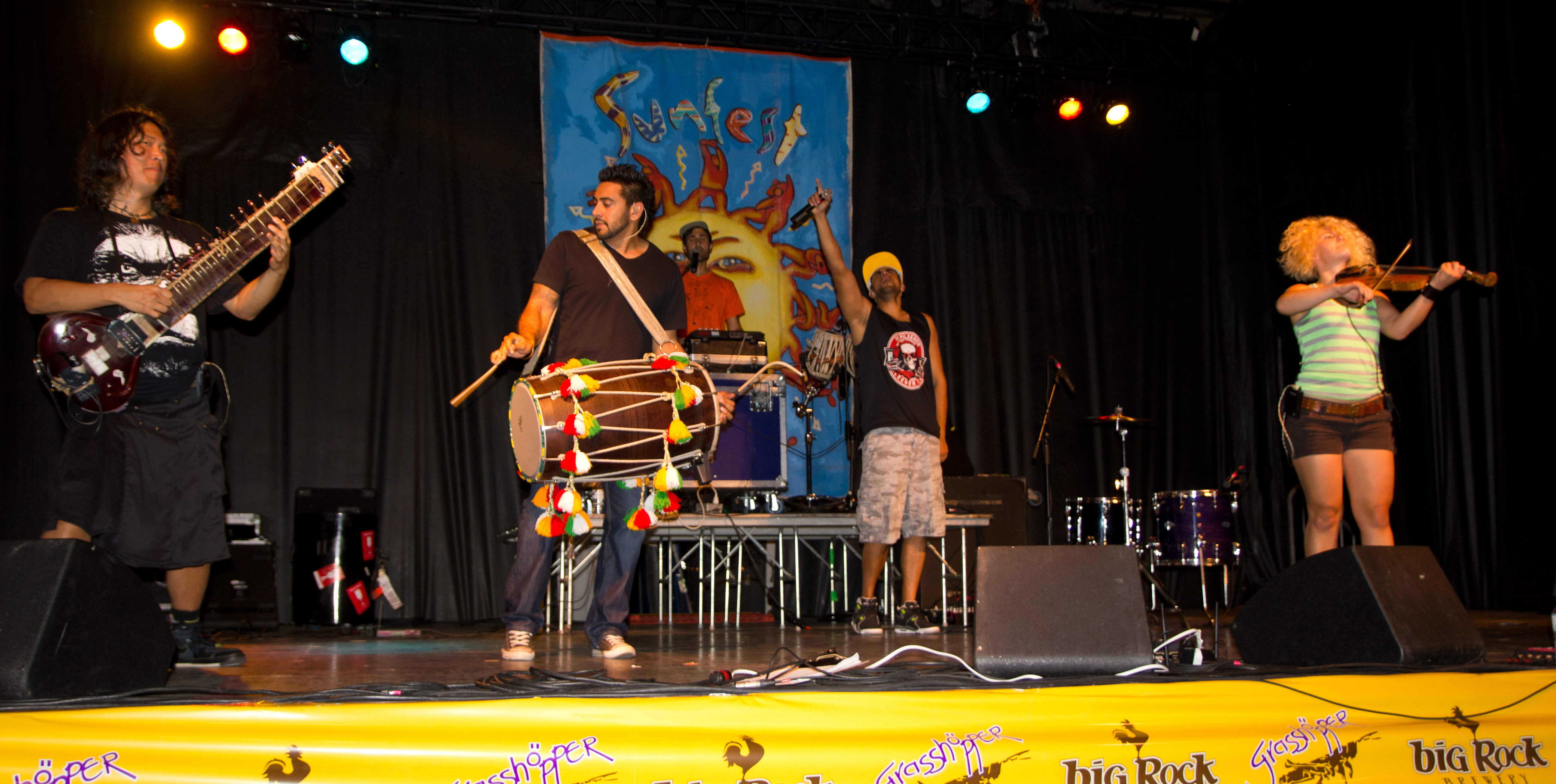
World music
"World music" is an English phrase for styles of music from non-Western countries, including quasi-traditional, intercultural, and traditional music. World music's broad nature and elasticity as a musical category pose obstacles to a universal definition, but its ethic of interest in the culturally exotic is encapsulated in Roots magazine's description of the genre as "local music from out there".[1][2]
For other uses, see World Music (disambiguation).World music
Indigenous music worldwide
Coined early 1960s to describe non-European, non-North American music[1]
This music that does not follow "North American or British pop and folk traditions"[3] was given the term "world music" by music industries in Europe and North America.[4] The term was popularized in the 1980s as a marketing category for non-Western traditional music.[5][6] It has grown to include subgenres such as ethnic fusion (Clannad, Ry Cooder, Enya, etc.)[7] and worldbeat.[8][9]
Precursors[edit]
Millie Small released "My Boy Lollipop" in 1964. Small's version was a hit, reaching number 2 both in the UK Singles Chart[21] and in the US Billboard Hot 100. In the 1960s, Miriam Makeba and Hugh Masekela had popular hits in the USA. In 1969 Indian musician Ravi Shankar played sitar at the Woodstock festival.[22]
In the 1970s, Manu Dibango's funky track "Soul Makossa"[23] (1972) became a hit, and Osibisa released "Sunshine Day" (1976). Fela Kuti created Afrobeat[24] and Femi Kuti, Seun Kuti and Tony Allen followed Fela Kuti's funky music. Salsa musicians such as José Alberto "El Canario", Ray Sepúlveda, Johnny Pacheco, Fania All-Stars, Ray Barretto, Rubén Blades, Gilberto Santa Rosa, Roberto Roena, Bobby Valentín, Eddie Palmieri, Héctor Lavoe and Willie Colón developed Latin music.[25]
The Breton musician Alan Stivell pioneered the connection between traditional folk music, modern rock music and world music with his 1972 album Renaissance of the Celtic Harp.[26] Around the same time, Stivell's contemporary, Welsh singer-songwriter Meic Stevens popularised Welsh folk music.[27] Neo-traditional Welsh language music featuring a fusion of modern instruments and traditional instruments such as the pibgorn and the Welsh harp has been further developed by Bob Delyn a'r Ebillion. Lebanese musical pioneer Lydia Canaan fused Middle-Eastern quarter notes and microtones with anglophone folk, and is listed in the catalog of the Rock and Roll Hall of Fame and Museum's Library and Archives[28][29] as the first rock star of the Middle East.[29][30][31][32][33]
Radio programs[edit]
World music radio programs today often play African hip hop or reggae artists, crossover Bhangra and Latin American jazz groups, etc. Common media for world music include public radio, webcasting, the BBC, NPR, and the Australian Broadcasting Corporation. By default, non-region-specific or multi-cultural world music projects are often listed under the generic category of world music.
Examples of radio shows that feature world music include The Culture Cafe on WWUH West Hartford, World of Music on Voice of America, Transpacific Sound Paradise on WFMU, The Planet on Australia's ABC Radio National, DJ Edu presenting D.N.A: DestiNation Africa on BBC Radio 1Xtra, Adil Ray on the BBC Asian Network, Andy Kershaw's show on BBC Radio 3 and Charlie Gillett's show[44] on the BBC World Service.
Many festivals are identified as being "world music"; here's a small representative selection:
Australia
Bangladesh
Belgium
Canada
Croatia
France
Germany
Ghana
(Free Electronic Dance Music Festival) was established in (2020) at Busua Beach in the Western Region, by Djsky S K Y M U S I C.[54]
Hungary
Iceland
India
Indonesia
Iran
Italy
North Macedonia
Malaysia
Mali
Morocco
New Zealand
Nigeria
Poland
Portugal
Romania
Serbia
Spain
Spain's most important world music festivals are:
Sweden
Tanzania
Turkey
Uganda
Ukraine
United Kingdom
United States